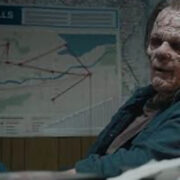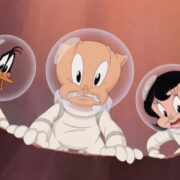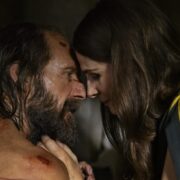TIFF Diary #2: Family In The Seats, Family On The Screen
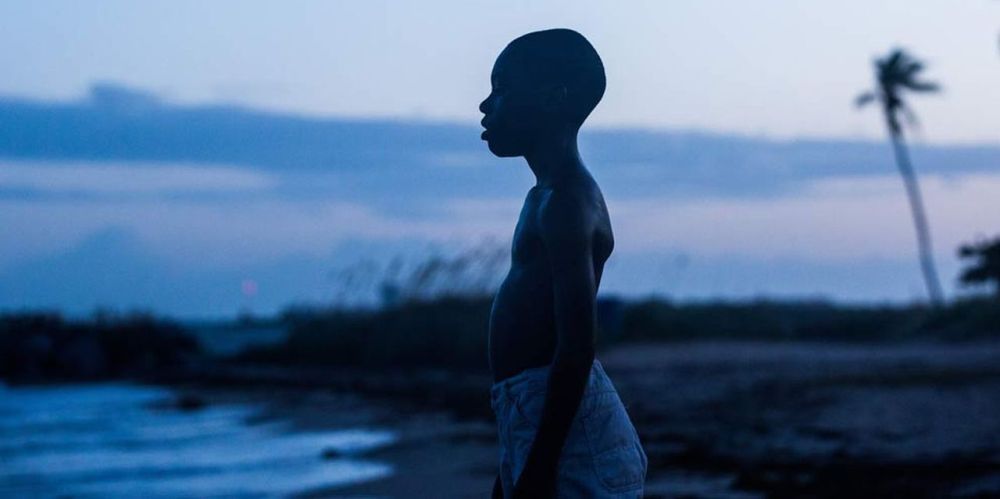
Tomas is a chronic cineaste who studied English literature in…
Family. It is something we cherish, and for those unfortunate few who don’t have one, it is something to seek. We are nurtured by familial ties; without them we would be stranded and alone. Yet we also create them through communities of shared interests and experiences. We surround ourselves with like-minded people and find in their care and compassion a solace that melts away our unrelenting anxieties. Family is more than just genealogical kinship, then. It is the network of beating hearts and fertile minds that interweave between our daily conditions and endeavors, softening them and making the unknown that much more bearable.
Film lovers know that they are a family, brought together by way of opinions and discourses that showcase their dreams and passions, interests and livelihoods. Film festivals like TIFF are a conduit to connections old and new, and you don’t go in without walking away bettered by the relationships you make (or hold onto) while seeing the films being featured. These festivals catalyze the meaning of being thrust onto the screen of life, for sitting in the proverbial audience are those who not only support us, but people who count on our existence to exist themselves.
It is impossible not to see this in places where the individual meets the collective. Twitter, for instance, shows this exactly: film lovers responding to film lovers, replying to or liking tweets, bandying about wit and snark with graceful aplomb and being integrated into something much larger than what they can put down in 140 characters. If there are disagreements or controversial takes, what follows is almost always a fierce conversation where different views are expounded upon and new ways of seeing opened.
Without this, we cannot become better, well-informed people, that goes without saying. But Twitter is still faceless and detached, and it is only when something as intimate and congenial as TIFF comes along that you can really feel the vibrancy and familiarity amongst the film community. It is only then that you can build the ties that will ground you to a meaningful, satisfying way of living. If the germ of a film-loving family is planted in social media, it is the film festival where it truly grows, prospers and becomes an asserted fact rather than an ambiguous assumption.
Colossal (Nacho Vigalondo)
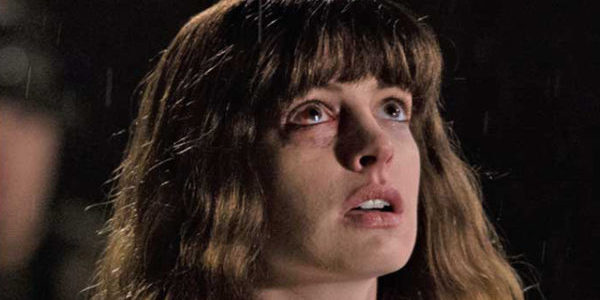
My second day of TIFF (September 9th) began and ended with one film, but it was because I brought my brother along for the ride. Though not a film enthusiast like myself, I felt it was important to bring him back to TIFF as a way of allowing him to get more of a sense of who I am, what I love most, and why something like TIFF matters. Not a bonding exercise per se, since I think we get along quite well, but an evening in which I could bring a blood relation to a place that I related to, with peers and likeminded film lovers who understood things that I understood.
The film was Nacho Vigalondo’s Colossal, a very enjoyable dramedy that works by turning common assumptions about science fiction narratives and (in particular) monster movies on their head. It’s not a radical reworking of extant tropes, and I think it could’ve gone even further in pushing them to their limit. Yet, its crowdpleasing elements are undeniable, and Anne Hathaway is wonderful in the lead role of an alcoholic woman squandering her life away through apathetic indolence.
Interestingly, though they are briefly mentioned, the family of Hathaway’s character is largely elided, and her relationships are instead built on love interests and childhood friends. Unfortunately, none of them prove to be either supportive or reliable, and if this film can be taken as a questing narrative, her quest is undoubtedly to negotiate amongst harmful masculinities in order to find the self-worth that has been denied her, and, in tandem with that, a place where she can belong. The aforementioned masculinities are rendered in very imposing terms, to put it mildly.
The Q&A was not an extensive one, though it was very interesting to learn that Vigalondo had only put the finishing touches on the film two days prior to the screening. Even the programmer had not seen it in its completed form until that night. Hathaway (radiantly dressed, as always) talked about wanting to involve herself in unique, experimental projects after seeing Ben Wheatley’s A Field in England, whilst her co-star Jason Sudeikis complimented his wife Olivia Wilde for getting him to pursue a role that was far from typical for him (I won’t say how atypical, though… you’ll just have to wait until the film is released).
It was a lovely evening altogether, and since my brother enjoyed the film, I can take it that the outing was a success.
The Red Turtle (Michael Dudok de Wit)
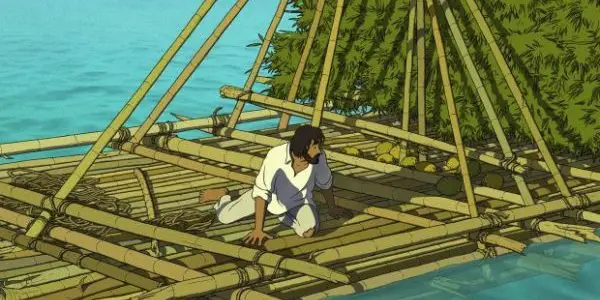
I was alone again for my third day at the festival (September 10th), though it was perhaps for the best, as I was blinking back my tears for both of my screenings. The first was The Red Turtle, a Studio Ghibli co-production directed by Michael Dudok de Wit in his feature-length debut. The animation is simply stunning, rendering the trials of a stranded island castaway with a great amount of poeticism and compassionate clarity.
At times it felt almost transcendental, what with its focus on being dutiful stewards of nature and finding a way of honoring the life force embedded within every granule and fabric of creation. If there is a film that exemplifies the essence of family and communion with the world around you, I’d say this one is it. And, surprise surprise, there is a family in this story; indeed, it could be said that it is the universal tale of family writ small, with mythological and allegorical touches brushed in to make it that much more special and emotionally involving.
If there’s one element that feels out of step with its surroundings, it’s the overly-dramatic score, which tries to fill the void of having no spoken dialogue and doesn’t quite succeed. It’s not enough to spoil the film’s emotional textures, however, including the beautiful and moving finale.
Dudok de Wit was exceedingly eloquent during the Q&A, generously answering every question with as much detail and perspective as he could possibly give in a limited timeframe. He explained that he came to make the film after Studio Ghibli emailed him and told him that they would produce it, and because of his love for castaway narratives and a reverence for the natural world, the project became a deeply personal one. And though he was advised by famed Ghibli producer Toshio Suzuki (who, like Dudok de Wit, has a natural affinity for sensitivity), he always had the final say in creative decisions.
The most interesting question was about the eponymous turtle and why he chose it as the film’s centerpiece, and he revealed that it was because there was something mythical and majestic about a creature that is seemingly immortal. Humanlike, too, in the way it arduously crawls to shore in order to lay its eggs. Another intriguing tidbit was the fact that the score had been one of the last things added to the film, and only after dozens of composers had sent him samples of their work.
Moonlight (Barry Jenkins)
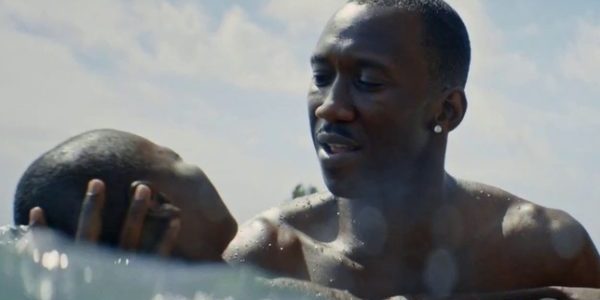
I waited an extra hour in line for Barry Jenkins’ Moonlight and got myself a spot near the front of the line despite the imminent threat of rain. Fortunately, though it drizzled for a little while, my umbrella kept me dry, and my reward was a great seat inside the gorgeous Winter Garden Theatre (stacked seven storeys above another iconic TIFF venue, the Elgin). You could tell that this was a hot ticket, with press and industry folks buzzing about to and fro, and everyone chattering excitedly. As someone who keeps his ear to the ground when planning his screening schedule, I knew from the moment it was announced that I had to see the film, and I was not disappointed in the least. In fact, it was one of the best TIFF screenings I’ve ever attended.
The film is, in a word, exceptional. Though excess hype has killed many a movie, this one deserves all the adulation heaped upon it. The serene and hypnotic beauty embedded within every frame, so lovingly tended and assembled, made my heart pound and my eyes well on several occasions. It is an earnest, sensitive rendering of the gulf between being black and being queer, remarkable as a testament to the fact that stories like this are rarely—if ever—made.
The acting is pitch-perfect, from the three actors who play the lead character from childhood to adulthood, to the sensitive supporting work from the likes of Mahershala Ali and André Holland. Most importantly, it is honest and never hits a false note. The final scenes, in particular, reverberate long after the film ends because of the way Jenkins lingers on the characters in their vulnerability. They are beautiful souls, and no attempts are made to mask that fact. My audience understood Jenkins’ achievement, for they gave him and the cast a rousing standing ovation when they appeared onstage for the extended Q&A.
What a Q&A. Everyone walked out of it enlightened and humbled by the hard work of the people involved with the film. Tears flowed from the faces of Ali (who was honored to have portrayed such a supportive role model) and playwright Tarell Alvin McCraney (who wrote the play which the film is based on) when remembering the father figure that Ali plays – a man who taught him to ride a bike before his own biological father.
Other cast members explained their involvement with the film: Janelle Monáe was inspired by her childhood as a big sister to her cousins, reiterating that she wanted to be a storyteller rather than merely a musician or an actress; Naomie Harris explained how she was wary of playing a crack addict until the script and Jenkins helped change her mind; Trevante Rhodes complimented his screen partner Holland as a role model to explain their striking chemistry together; and little Alex Hibbert simply loved seeing himself on a big screen.
As for Barry Jenkins himself? He exuded charisma, bear-hugging artistic director Cameron Bailey, and charming the audience with eloquence and wit. He explained that he wanted to adapt McCraney’s work because he felt that Tarell’s memories were his memories (and, serendipitously, they grew up in the same community). Because of these memories, he tried to style the film as a fever dream (though he also namechecked Taiwanese director Hou Hsiao-Hsien as another influence).
Tarell was impressed by how true to form Miami is depicted, a place where bad things happen, yet a place that retains a seductive haziness that can be felt in the air… and in the film itself. Even when an audience member mistook the Arri Alexa for 35mm, Jenkins took it in stride. It was a beautiful half hour with a cast that supported each other like a true family, and the best way to end the day I could have hoped for.
The Duelist (Aleksey Mizgirev)
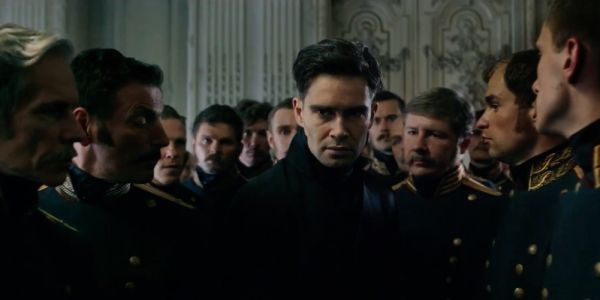
My fourth day (September 11th) was a short one because I treated my mom to a screening, a little tradition that we’ve been keeping up for the third year now. We walked along Festival Street and sat down by the side of the road for a dinner at an Italian restaurant (stuffed chicken for me; grilled salmon for her—everything tasting great). It was the first time I had seen my mom since I began the festival, since she was always in bed by the time I got home and at work when I set off. I had missed her, so it was lovely to be able to make up for some of the time we’d lost by filling her in on the films I had already seen.
The film that we were heading to was Aleksey Mizgirev’s The Duelist, which played at a local movie theatre rather than one of the grander venues because it was shot in IMAX and therefore needed the appropriate screen. The theatre, Scotiabank, is also used for press and industry screenings, and is somewhat notorious for its big escalator that was out of order for a good chunk of the festival (much to everyone’s chagrin, since the staircase is just as sizeable).
It was our good luck to see it running that evening, and when we sat down at the time the film was scheduled to start, we were hoping for the best, especially since we had turned down Pablo Larraín’s Jackie. Alas, we probably should have gone for Jackie, because The Duelist wasn’t as good as it initially looked. Despite the entertaining story, which follows a mercenary duelist and his desire to avenge himself against the evil count who stripped him of his nobility and destroyed his family, I didn’t care much for its grandiose self-seriousness and the dour focus on masculine honor above all else. It also contained a rather troublesome rape scene that I felt was unnecessary to the plot. My mom was just as disappointed, as she had hoped to see a tasteful romance rather than a bloody adventure spectacle.
The Q&A paled in comparison to Moonlight’s, partly because Mizgirev’s answers were too straightforward and unimaginative, and partly because the audience questions weren’t especially probing. When a well-meaning woman asked why the film was set in the nineteenth century, I couldn’t help but inwardly groan. What’s more, the lead actor showed up only to stand bashfully at the side, joking that Mizgirev was a real taskmaster on set and saying nothing else. The only thing of note I learned was that the production team went above and beyond to maintain historical accuracy, even going so far as to obtain real dueling pistols from the period.
Stay tuned for my next TIFF diary entry, where I will share my experience seeing some of the year’s most anticipated titles, including Damien Chazelle’s La La Land, Denis Villeneuve’s Arrival and Kenneth Lonergan’s Manchester by the Sea.
What is one question that you hope never to hear during a film festival Q&A session? Let us know in the comments below!
Does content like this matter to you?
Become a Member and support film journalism. Unlock access to all of Film Inquiry`s great articles. Join a community of like-minded readers who are passionate about cinema - get access to our private members Network, give back to independent filmmakers, and more.
Tomas is a chronic cineaste who studied English literature in university (in both the undergraduate and graduate levels), and hopes to pursue a career in writing. His passion for film began in earnest at the beginning of the 2010s, and since then he's been reveling at the vast horizons of the cinematic landscape like a kid at the proverbial candy store.






